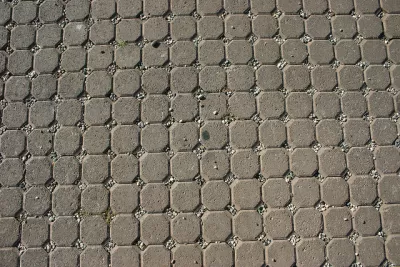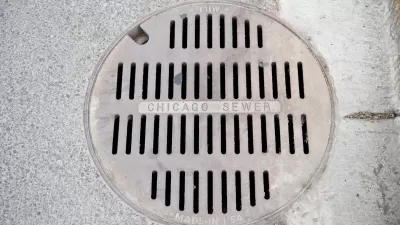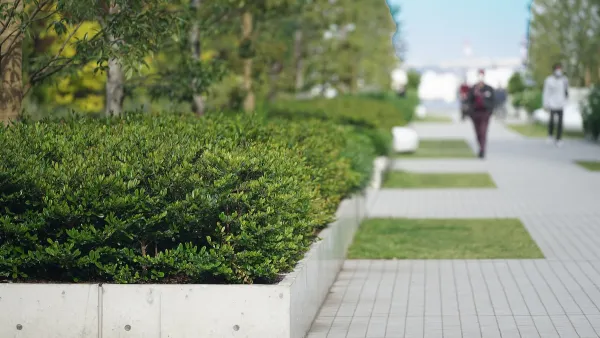These Atlanta neighborhoods stand to gain in the long term from the city's new permeable pavement system and water retention park. But the project has displaced some residents.

Caught at the confluence of combined sewers and stormwater drains, the Atlanta neighborhoods of Peoplestown, Summerhill, and Mechanicsville are undergoing a transformation from impervious to permeable surfaces.
Jen Kinney writes, "The three neighborhoods, largely covered in impervious surface and located in a basin that serves as the natural drainage point for the entire 1,500-mile watershed, have proven highly susceptible to flooding in major rain events."
To fix the problem, the city has embarked on an ambitious project. "With recognition that water would always flow to [one particular point], that system uses a variety of tools, including stormwater ponds and the largest permeable paver project in the U.S. — maybe the world. It's also displacing nearly all of the residents of that highly affected block. The city has acquired all but one of the 29 houses, and is turning the entire block into a water retention park." Stormwater will be separated from untreated waste.
Displaced residents aren't happy though. One of them put it like this: "It's not an amenity if you're being displaced."
"The centerpiece of the project, begun shortly after the flooding and just completed this fall, is nearly 5 miles of streets paved with permeable surface. Spread out between the three neighborhoods, these brick-lined streets allow water to filter down into the earth without passing through the sewer system."
FULL STORY: Stormwater Rethink Aimed at Flooding in Atlanta Neighborhoods

Maui's Vacation Rental Debate Turns Ugly
Verbal attacks, misinformation campaigns and fistfights plague a high-stakes debate to convert thousands of vacation rentals into long-term housing.

Planetizen Federal Action Tracker
A weekly monitor of how Trump’s orders and actions are impacting planners and planning in America.

In Urban Planning, AI Prompting Could be the New Design Thinking
Creativity has long been key to great urban design. What if we see AI as our new creative partner?

King County Supportive Housing Program Offers Hope for Unhoused Residents
The county is taking a ‘Housing First’ approach that prioritizes getting people into housing, then offering wraparound supportive services.

Researchers Use AI to Get Clearer Picture of US Housing
Analysts are using artificial intelligence to supercharge their research by allowing them to comb through data faster. Though these AI tools can be error prone, they save time and housing researchers are optimistic about the future.

Making Shared Micromobility More Inclusive
Cities and shared mobility system operators can do more to include people with disabilities in planning and operations, per a new report.
Urban Design for Planners 1: Software Tools
This six-course series explores essential urban design concepts using open source software and equips planners with the tools they need to participate fully in the urban design process.
Planning for Universal Design
Learn the tools for implementing Universal Design in planning regulations.
planning NEXT
Appalachian Highlands Housing Partners
Mpact (founded as Rail~Volution)
City of Camden Redevelopment Agency
City of Astoria
City of Portland
City of Laramie





























